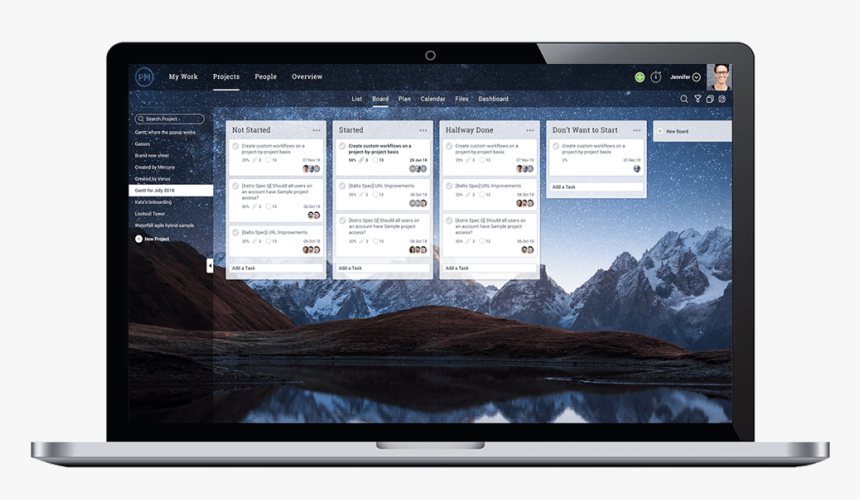Data-Driven Project Management: Leveraging Analytics
Data-Driven Project Management: Leveraging Analytics
Blog Article

In today's fast-paced business environment, effective project management has become more critical than ever. Organizations are continually seeking ways to improve their efficiency, reduce costs, and deliver higher quality results on time. As a result, project managers are increasingly turning to data analytics to enhance their decision-making processes and drive better project outcomes. Leveraging data not only provides insights into project performance but also helps in identifying potential risks and opportunities for improvement.
By utilizing data-driven techniques, project managers can assess key performance indicators and track progress against established benchmarks. This approach allows teams to make informed decisions based on real-time information rather than relying solely on intuition or past experiences. As we explore the intersection of project management and analytics, we will uncover the various tools and strategies that can transform how projects are planned, executed, and evaluated, ultimately leading to more successful results and a stronger return on investment.
The Importance of Data in Project Management
Project Management Training
In today's fast-paced business environment, data plays a crucial role in project management. With the growing complexity of projects, managers must rely on accurate data to make informed decisions. By leveraging data analytics, project managers can gain insights into various aspects of their projects, from resource allocation to timeline management. This data-driven approach helps in minimizing risks and enhancing the overall efficiency of project execution.
Understanding the significance of data in project management allows teams to identify trends and patterns that may not be apparent through traditional management methods. With access to real-time data, project managers can monitor progress, assess performance, and adapt strategies promptly. Utilizing data helps in setting realistic milestones and ensures that stakeholders are always informed about the project's status, which fosters transparency and accountability.
Moreover, data analytics enables continuous improvement in project management practices. By analyzing past projects, teams can pinpoint what worked well and what did not, leading to better planning for future initiatives. The insights drawn from data not only enhance the decision-making process but also contribute to the overall success of projects by facilitating a culture of learning and adaptability within organizations.
Key Analytics Tools for Project Managers
Effective project management relies on various analytics tools that can streamline processes and enhance decision-making. One popular tool is Microsoft Project, which provides comprehensive features for planning, scheduling, and tracking project activities. Its robust reporting capabilities allow project managers to analyze progress in real time, ensuring that teams stay on schedule and within budget. The integration with other Microsoft applications makes it a preferred choice for many organizations.
Another essential tool is Trello, known for its visual project management approach through boards and cards. Trello's analytics features help project managers monitor workflow and identify bottlenecks. Its flexibility allows teams to customize boards to fit their processes, making it suitable for both Agile and traditional project management methodologies. The ease of use and collaboration features of Trello make it an excellent option for teams seeking to enhance communication and productivity.
Lastly, Tableau stands out in the realm of data visualization and analytics. This powerful tool enables project managers to create interactive dashboards that display key performance indicators and project metrics. By integrating data from multiple sources, Tableau provides valuable insights that can inform strategic decisions and improve overall project outcomes. Its ability to transform complex data into easily understandable visuals ensures that project stakeholders can quickly grasp essential information and contribute to the project's success.
Best Practices for Data-Driven Decision Making
A crucial aspect of successful project management is the ability to make informed decisions based on data. This involves establishing clear KPIs that align with project goals. By defining what success looks like upfront, project managers can better measure progress and outcomes. Regularly reviewing these KPIs allows for timely adjustments and ensures that the team is on track to meet objectives, optimizing both resources and deliverables.
Emphasizing collaboration among team members enhances data utilization. When stakeholders engage in open discussions about performance metrics and project analytics, it fosters a culture of transparency and accountability. Leveraging different perspectives can lead to innovative solutions based on the data at hand, allowing projects to adapt quickly to changing circumstances or unexpected challenges.
Finally, investing in the right tools and technologies is essential for data-driven project management. Utilizing software that can effectively analyze and visualize project data helps streamline decision-making processes. This ensures that project managers have quick access to insights that can influence strategic choices, ultimately leading to improved results and project success.
Measuring Project Success Through Analytics
Measuring project success is no longer limited to completing tasks on time and within budget. Analytics provides a deeper understanding of project performance by evaluating various metrics and outcomes throughout the project lifecycle. By identifying key performance indicators (KPIs), project managers can assess factors such as productivity, resource allocation, and stakeholder satisfaction. These insights help teams to pinpoint areas for improvement and ensure that future projects are more aligned with strategic goals.
Furthermore, analytics enables project managers to utilize historical data to inform decision-making processes. By analyzing past project outcomes and identifying trends, teams can make more accurate predictions about timelines and resource needs. This data-driven approach minimizes uncertainty and enhances the ability to respond proactively to potential challenges. As a result, project managers can navigate complexities with greater confidence and improve the overall success rate of projects.
The role of analytics in measuring project success also extends beyond internal metrics. By incorporating client feedback and market conditions, project managers can gauge external perceptions of project outcomes. This holistic view allows teams to refine their project approaches, ensuring that they not only meet organizational objectives but also deliver value to clients and stakeholders. In an increasingly competitive landscape, leveraging analytics effectively can be the differentiator that elevates project management practices and drives sustained success.
Report this page